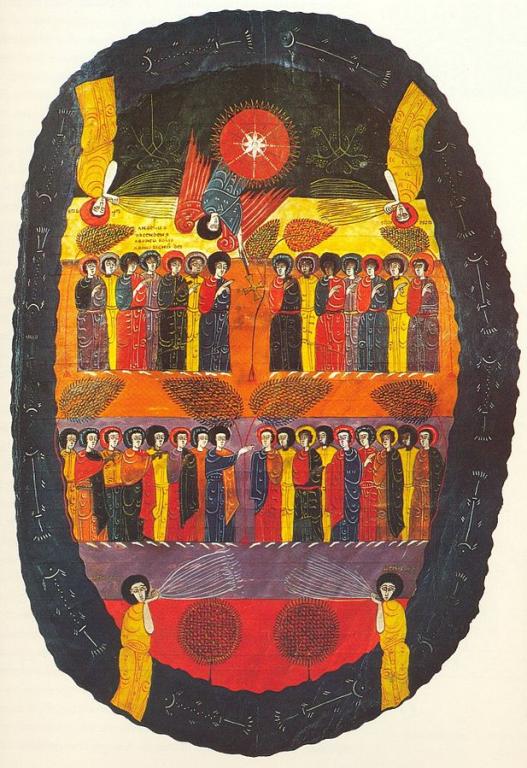
John 17 records Jesus’ high-priestly prayer, where the Lord cries out to his Heavenly Father, longing for the Church to be one as he and his Father are one in complete and total unity. Then the world will know that God has sent Jesus to the world and has loved them just as the Father has loved his Son. A movement of Christian leaders here and abroad long to see that prayer and vision lived out in our midst in terms of race and class communion in our world today (John 17:23). Here I interview three of these leaders. In this blog post and the video interview that follows at the close of this entry, we are addressing the multi-ethnic church movement—its past, present, and future. We can only touch upon this important and vital enterprise here, so I encourage you to follow the work of my distinguished colleagues, who are leaders in the multi-ethnic church movement. They are as follows: Oneya Fennell Okuwobi, a sociologist and Ph.D. Candidate at The Ohio State University; Michael Emerson, Professor and Head in the Department of Sociology at the University of Illinois at Chicago; and Mark DeYmaz, the founding pastor of the Mosaic Church of Central Arkansas, as well as co-founder, CEO, and President of the Mosaix Global Network.
Paul Louis Metzger (PLM): Mark, how would you define a multi-ethnic church for our viewers? Here I am thinking of distinctive traits, values, and percentages (as in percentage of congregants of diverse ethnic backgrounds, as well as staff/leadership).
Mark DeYmaz (MD):
PLM: Michael, you and Mark have been leaders in the multi-ethnic church movement among Evangelicals for a long time. You have called for stepping back and looking at the big picture, to see the gains made, the pressing challenges, and the need for the multi-ethnic church movement to grow not simply from being toddlers to teenagers, but ultimately to press on to adulthood. Please unpack this big picture, some of the gains, challenges, and needed future growth in light of your research since the book Divided By Faith.
Michael Emerson (ME):
PLM: Oneya, you have written, “When multiracial organizations mask racial inequality, they may reify stratification instead of remedying it” (https://u.osu.edu/okuwobi.1/). Could you please unpack that claim for the viewership, including its import? {Refer to Oneya Fennell Okuwobi, “‘Everything that I’ve Done Has Always Been Multiethnic’: Biographical Work among Leaders of Multiracial Churches,” Sociology of Religion, Volume 80, Issue 4 (Winter 2019): 478–495; https://doi.org/10.1093/socrel/sry058}.
Oneya Fennell Okuwobi (OFO):
PLM: Mark, you have shared with me, and with readers generally, that recent analyses of the multi-ethnic church movement have not gone far enough to address the complexities, including the gains. You have stated that, unfortunately, some analyses (refer here, for example) have approached the movement as if it is a glass or cup “half empty,” whereas in actual fact, it is really a glass “half-full.” Please develop this imagery for our viewers, accounting for both metaphors, and how it bears on your critical and constructive assessment of recent analyses of the multi-ethnic church movement.
MD:
PLM: Michael, you were quoted in The New York Times article “The Quiet Exodus: Why Black Worshippers Are Leaving White Evangelical Churches” as saying that the past Presidential election has had a huge impact on the decrease of African American attendees/members in multi-ethnic churches. Here is the exact quote:
Everything we tried is not working,” said Michael Emerson, the author of “Divided by Faith,” a seminal work on race relations within the evangelical church. “The election itself was the single most harmful event to the whole movement of reconciliation in at least the past 30 years,” he said. “It’s about to completely break apart.
Please feel free to edit and/or expand on that statement attributed to you. Further, for all the great gains generally involving other ethnicities, the initial boom in terms of African American inclusion has taken a downturn within Evangelicalism. You have been quoted elsewhere as saying that “there is some exodus,” which needs to be noted and addressed. In your estimation, what in particular has led to this partial exodus after initial great gains/inclusion of African Americans? Given your and Christian Smith’s work on how racialization proceeds by way of constants rather than variables, what variables do you see in play today?
ME:
PLM: It is not enough to be about “racial reconciliation” (as many white-led/shaped Evangelical churches have emphasized). We have to be about racial justice and equity. While that certainly includes diversity of leadership in churches, including African American leadership in increasing measure, there must be more than that, it seems to me. Oneya, how does this discussion bear on racial equity? Organizations, including multi-ethnic churches, could/will often experience certain benefits for such diversification. However, that does not safeguard or ensure the equal or equitable distribution of those resources. Would you agree with these statements? If that is so, how do we move forward with greater intentionality to ensure equal or better equitable distribution to fill the glass and lead the multi-ethnic church movement to adulthood?
OFO:
PLM: Colleagues, what closing thoughts do you wish to share with our viewers?
OFO/ME/MD:
Other questions remain. For those of us who read this post and watch this interview, how would we respond to the following? What are we willing to do to live into the reality of what Jesus prays to the Father in John 17:23 as we depend on the Spirit? What steps will we take to enter more fully into a reconciled church that involves diverse unity of love, equity, and justice? We settle for so little when God calls us to so much more. Let’s not lose out by keeping one another out, but live into the richness of the biblical tapestry of the multi-colored, multi-cultural “glocal” reality of Revelation 7, bringing the eschatological future into our present experience together in the Lord.












